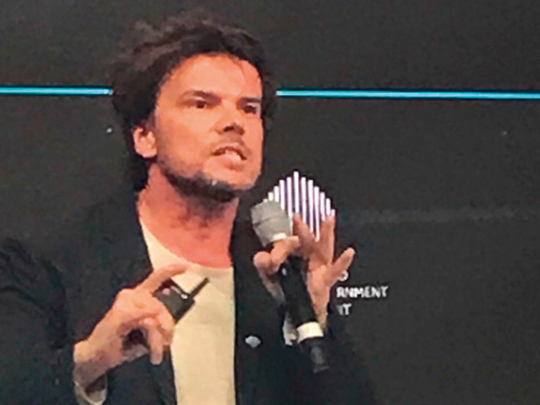
Dubai: Dubai is the first step in the journey of humans colonising Mars, internationally-acclaimed Danish architect Bjarke Ingels told the World Government Summit (WGS) in Dubai on Monday.
Is his session, titled ‘Why Evolution Leads to Mars’, Ingels traced the evolution of technology and transport that allowed man to inhabit all corners of the Earth, including its most inhospitable places.
The award-winning architect, named by Time magazine in 2016 as among the ‘100 Most Influential People in the World’, said humans will, within a century, become the first species to inhabit another planet — Mars.
The three-month journey to Mars, located some 600 million kilometres away, and settling there is possible because of human ingenuity and resolve, he added.
“The first step in this is going to be the Mars Science City that we’re going to start building right here in Dubai,” Ingels said.
The Dh500 million project, announced last September at the Annual Government Meetings in Abu Dhabi, will simulate life on Mars.
The project encompasses laboratories for food, energy and water, as well as agricultural testing and studies about food security in the future.
The Mars Science City is aligned to the UAE’s objectives to lead the global scientific race to take people to Mars. It is part of the Mars 2117 Strategy, launched during last year’s WGS World, which seeks to build the first settlement on Mars in the next 99 years.
Ingels said: “So, the timescale for this is that the Dubai Future Foundation has said that in 99 years, in 2117, we going to have an Emirates city on Mars. But what we are going to start now, with the Mars Science City, is a prototype of that right here in Dubai, in the middle of Mushrif Park. We want to create a prototype where you can experience how it’s going to feel like living on Mars, and for education, research and exhibitions.”
Ingels said establishing human colonies on Mars would, ironically, makes humans on earth “become the most capable custodians of the planet we inhabit”. He explained that by striving to build a “man-made ecosystem” on the Red Planet, humans would have to maximise efficiency and ingenuity in farming, building materials, architecture, recycling, and many other fields — all using less-than-ideal resources on Mars. This knowledge and practice would be replicated on Earth to reach a pinnacle in sustainable living, he said.
Mars, though inhospitable and unsuited for human life, is closest to the Earth in many ways when compared to other planets in the solar system, and offers the best opportunity for an interplanetary civilisation, he added.







